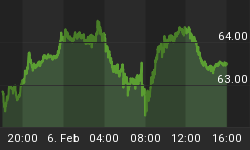Think of devaluation as the monetary equivalent of the "tragedy of the commons". In a nutshell, if everyone owns something, it is in each individual's interest to grab what they can as quickly as possible, which soon depletes the resource.
With currency exchange rates, as with fisheries and sheep pastures, there's an advantage for those who move first and pain for those who dither. Consider Iceland's nearly-instantaneous recovery from its epic banking crash:
In European Crisis, Iceland Emerges as an Island of Recovery
VESTMANNAEYJAR, Iceland--Three and a half years after Iceland collapsed in a heap, Dadi Palsson's fish-processing plant has the air of a surprising economic recovery.
Mr. Palsson arrived at 4 a.m. on a recent workday. Twelve tons of cod were coming in. Soon, his workers would bone, slice and pack the fish for loading onto towering container ships headed abroad.
In 2008, Iceland was the first casualty of the financial crisis that has since primed the euro zone for another economic disaster: Greece is edging toward a cataclysmic exit from the euro, Spain is racked by a teetering banking system, and German politicians are squabbling over how to hold it all together.
But Iceland is growing. Unemployment has eased. Emigration has slowed.
Iceland has a significant advantage over stressed euro-zone countries--a currency that could be devalued. That has turned its trade deficit into a surplus and smoothed its recovery.
So brisk is the fish business that Mr. Palsson's factory draws Polish workers to this island off an island, a heart-shaped dollop of volcanic rock five miles from Iceland's south coast.
"Every house is full because we can offer so many jobs," said Mr. Palsson, 37 years old. On his humming factory floor, cod whip through machines that lop off heads and slice out bones. Rows of workers in Smurf-blue smocks lean over illuminated tables to cut the filets.
Iceland--with its own currency, its own central bank, its own monetary policy, its own decision-making and its own rules--had policy options that euro-zone nations can only fantasize about. Its successes provide a vivid lesson in what euro countries gave up when they joined the monetary union. And, perhaps, a taste of what might be possible should they leave.
Iceland fell hard in 2008. Its engorged banking system sunk and unemployment soared. The government was jeered out of office by dispirited voters in angry street protests. Young people packed their bags. As in the euro zone, the International Monetary Fund parachuted in with a bailout.
Its currency devalued by half. That boosted exports, like Mr. Palsson's fish, and trimmed costly imports, like cars. The weakened krona was hard on homeowners who borrowed in foreign currency, but Iceland's judges and policy makers orchestrated mortgage relief. Expensive foreign goods also ignited inflation. Consumer prices have risen 26% since 2008.
That rescue, in turn, weighed on the financial system. But unlike Ireland, for example, Iceland let its banks fail and made foreign creditors, not Icelandic taxpayers, largely responsible for covering losses.
Iceland also imposed draconian capital controls--anathema to the European Union doctrine of open financial borders--that have warded off the terrifying capital and credit flights that hit Greece, Ireland and Portugal, and now test Spain and Italy.
And instead of rushing into the sort of spending cuts that have ravaged Greece and Spain, Iceland delayed austerity. Initially, the country even increased social-welfare payments to its poorest citizens, whose continued spending helped cushion the economy.
Some thoughts
In Greece and the other PIIGS countries, Iceland is the real-world blueprint for those who want to abandon the euro experiment and take back national control of monetary policy -- in other words, to regain the ability to devalue.
Iceland is also an example for many proponents of holding the eurozone together, who see a monetization of peripheral country debt as the only way to preserve the union and keep the big German and French banks solvent. In other words, they'll keep the euro but devalue it.
So regardless of whether the eurozone dissolves or is endures, devaluation is the centerpiece policy. Either the drachma, peseta and lira are revived at a 50% discount, or the euro is devalued by a similar amount. There's no sound-currency solution to all this debt.
Everyone also knows that the benefits of devaluation go primarily to those who strike first, so there's a growing sense of urgency.
Which brings us back to the tragedy of the commons. When (not if) the eurozone starts devaluing, the dollar and yen will have to follow suit, and then it's game on, a race to the bottom with no winners. Except for gold.















